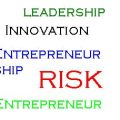Franchising Definition – What Is It And How Do These Business Opportunities Work?
Franchising is one of the greatest ways to start your own business and be your own boss and at the same time take advantage of an already established brand and business operations. This is why everybody should know what it means. Here I will throw some light on the matter, giving you a very simple franchising definition. We will see how it works and will go through its main advantages and disadvantages.
How Does Franchising Work? An Example With “John’s Bread”
Imagine that John has built a successful bakery and makes really fine bread. For the last few years, his brand has been well-established and everybody in town knows about the tasty bread he makes. John has coined the most efficient processes procurement with materials, for preparing the right dough according to a secret recipe, he has a special baking procedure for achieving the most awesome crust on his bread that one could imagine. John has not only established a well-recognized brand in his town but also he has built up precious know-how about how to prepare the most delicious bread in the state. All of this has resulted in a really profitable business that could be easily replicated in other towns and states. But how can John open many new stores, he would need lots of money to replicate his business multiple times. Or it may be possible that John just doesn’t want to expand, because of the fact he doesn’t want to be involved in the management of new stores and people. So what could our guy do in this case? He can simply take advantage of franchising and become a franchisor. Everybody who likes his business and wants to start a company of her own can use John’s proven business model, his secret recipe and baking procedure, and the “John’s Bread” brand that everybody already knows. Let’s imagine that Pamela wants to open a bakery. She can simply become a franchisee of John and this way she can copy and paste John’s business to her location. Pamela can start benefiting from everything already established as know-how by paying a franchising fee to John. For providing the know-how, John collects a $2 000 dollars initial fee and 5% of the yearly income of Pamela’s (and any other new) business unit. In exchange, he gives the right to the new business to use his trademark, helps with the start of the new store, with marketing, and with training their staff. This is actually how the McDonalds empire was actually built.
What Is Franchising? Definition And Some Advantages And Disadvantages
The definition of franchising is simply when a business (franchisor) sells a well-established and successful business model to other businesses (franchisees). This way the franchisor expands their business and brand without having to manage the new branches, and without the need to invest money and resources to expand. The new store/business unit is an almost independent and separate company, that is managed by its own manager and has its own staff. What the franchise takes advantage of, is the opportunity to start an already working business and receive complete know-how for running it. It operates under the brand of the franchisor and sticks to some rules in order to clone the same successful business model. The franchisee gets the right to use the franchisor trademark.
In exchange for the lucrative business model, the franchisor collects a percentage of the income (or profit) of its franchisees and sometimes a one-time fee at the beginning of the contracts between them. The taxes and fees may vary, and sometimes the franchisor may take a stake in the equity of the franchisee.
Some of the most popular and successful franchises are McDonald’s, Starbucks, Subway, Dunkin’ Donuts, 7-Eleven, Great Clips, KFC, and many others.
Video
To further understand the meaning of franchising, you can watch this amazing video explaining the basics of it. Here you are:
Overall, Franchising is a business arrangement whereby the franchisor licenses the franchisee to market and sell its goods or services throughout a specific geographical region. In most cases, the right to ownership and use of the franchisor’s name, logo, trademark, and system is included in the franchise package. In exchange, the franchisee pays the franchisor an initial fee plus ongoing royalty payments.
Franchising offers many benefits to both the franchisor and the franchisee. For the franchisor, it helps to spread the risk of expansion by allowing them to grant the right to market their goods and services throughout a given region. This can help to ensure faster, more successful expansion into new markets, which can mean greater profits for the franchisor. Additionally, the franchisor can benefit from the marketing efforts of its franchisee, which can help to increase brand recognition and customer satisfaction.
For the franchisee, franchising provides the opportunity to become their own boss and own a business without having to start from scratch. The franchisor provides the necessary training, support, and resources needed to get the business up and running quickly. This is often much quicker than if the franchisee had to start their own business from the ground up. Additionally, the franchisee can benefit from the marketing efforts of the franchisor, resulting in increased customer recognition and loyalty.
Resources
If you are hungry for more information on this great way of starting a business, you can check the following useful resources:
On Wikipedia: https://en.wikipedia.org/wiki/Franchising
franchising.com – a site full of information about franchising, tips and lessons, opportunities, and much more.
Do you find this post interesting? Please consider sharing it with friends and help us this way with the development of the site. Thanks!




